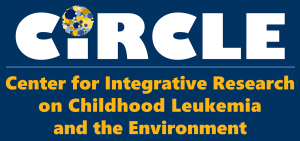Rachel Morello-Frosch, PhD, MPH, Professor, UC Berkeley
The Haves, The Have-nots, and the Health of Everyone: Connections Between Equity and Sustainability
Dr. Morello-Frosch is Professor in the Department of Environmental Science, Policy and Management and the School of Public Health at UC Berkeley. Her research examines race and class determinants of health among diverse communities in the US with a focus on social inequality, psychosocial stress and how these factors interact with environmental chemical exposures to produce health inequalities.
Dr. Morello-Frosch examines social and environmental factors that drive health disparities and are environmental justice concerns in California and throughout the country.
Brian Trainor, PhD, Professor, UC Davis
Neuroendocrine Basis of Stress
Dr. Trainor is director of the Behavioral Neuroendocrinology Lab at UC Davis where he studies the effects of stress on the brain and behavior using a rodent model that allows his team to examine both males and females.
Dr. Trainor provides an overview of the neurologic and hormonal mechanisms by which stress may impact health.
Camelia Hostinar, PhD, Assistant Professor, UC Davis
Allostatic Load, Early Development and Lifelong Impacts
Dr. Hostinar is a developmental psychologist who studies how the social environment shapes health, with a focus on the activity of the stress-response and immune systems. She investigates the ways in which childhood poverty and other forms of early-life adversity influence later mental and physical health.
Dr. Hostinar discusses the lifelong consequences of experiencing psychosocial adversity in childhood and presents ideas for interventions that may mitigate these impacts.
Dr. Gail Christopher, DN, W. K. Kellogg Foundation
Environmental Justice: Truth, Racial Healing and Transformation (Keynote Presentation)
Dr. Christopher is senior advisor and vice president at the W.K. Kellogg Foundation. In this role, she leads the foundation’s Truth, Racial Healing and Transformation (TRHT) enterprise. She is a nationally recognized leader in health policy, social determinants of health, health inequities and public policy issues of concern to our nation’s future.
Dr. Christopher provides her illuminating perspective on addressing and mitigating the effects of social dislocation and inequities. She advocates for the need of an explicit inclusion of racism as a social determinant of health.
Lia Fernald, PhD, Professor, School of Public Health, UC Berkeley
SES, Family Processes and Child Development: Intervention Effects
Dr. Fernald is a Professor in Community Health Sciences at the School of Public Health at the University of California, Berkeley. Dr. Fernald’s work focuses primarily on how inequalities in socio-economic position contribute to health, growth, and developmental outcomes in mothers, infants and children, and on how interventions can address socio-economic and health disparities.
Dr. Fernald shares lessons learned from working in low and middle income countries. Poverty has a potent impact, particularly on language and executive function development, around the world and in California. Worldwide, over 250 million children live in poverty keeping them from attaining their full developmental potential.
Laura August, MPH, Research Scientist, OEHHA
CalEnviroScreen: Mining for Data on Children, Poverty, and Other Social and Environmental Factors
Ms. August is a lead on the development of CalEnviroScreen, an environmental justice screening tool, at OEHHA. CalEnviroScreen identifies communities that are disproportionately burdened by multiple sources of pollution and are most vulnerable to the effects of pollution. Ms. August has also published scientific research, conducted trainings and presented to a wide variety of audiences on CalEnviroScreen and cumulative impacts.
Ms. August’s presentation examines what we can learn from the CalEnviroScreen data about children’s health in California. A case example of pesticide exposure among children is utilized.

